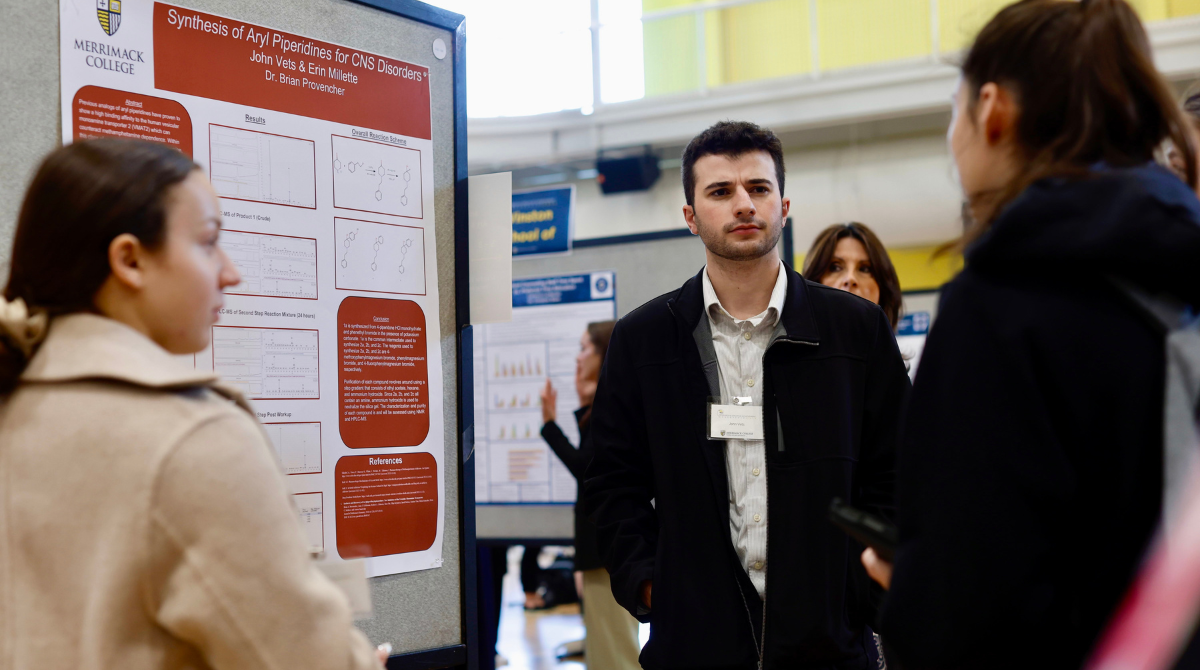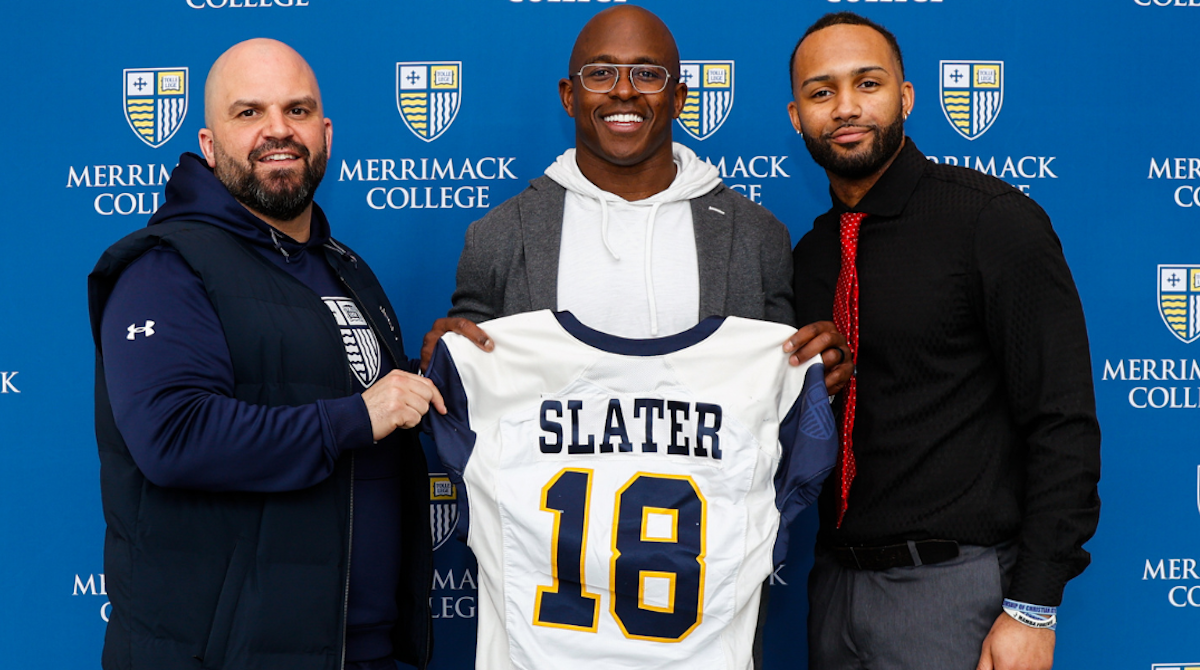Merrimack faculty Assistant Professor Alyssa Yetter and Associate Professor Tunde Szivak are examining the entirety of police academy performance, both academically and physically, and specifically how fitness, wellness and mental health impact recruits’ success.
“Because the Merrimack College Police Academy is a unique program we wanted to collect data and make a research assessment out of it,” said Yetter, an assistant professor of criminology and criminal justice. “Once we started collecting data, we wanted to expand the scope and look at the other academies the state operates in order to build a more robust research collaboration.”
After piloting the program at MCPA, Merrimack is applying for a grant from the National Institute of Justice to expand its partnership with the Massachusetts Municipal Police Training Committee (MPTC) and implement the study at 18 police academies across Massachusetts. This has the potential to yield data from up to 1,250 cadets.
“Eventually we hope this will impact everyone and bring lifelong wellness to the law enforcement community and their personal lives,” said Andrea Nardone, chief of training with the MPTC. “This is a unique partnership and it has been wonderful.”
Initial physical performance data collected suggests body mass or weight is not necessarily an indicator of physical fitness, Szivak noted, and cadets with higher body mass can and do perform well on anaerobic tests.
“It is a very physically demanding career, so the fitness piece plays a role in the mental wellness and resilience aspect,” said Szivak, an associate professor of exercise and rehabilitation sciences.
The Merrimack and MPTC partnership goes beyond physical fitness research as well, with two graduate students from the Winston School of Education and Social Policy completing their fellowship with the MPTC, in addition to two undergraduate students doing summer internships last year.





